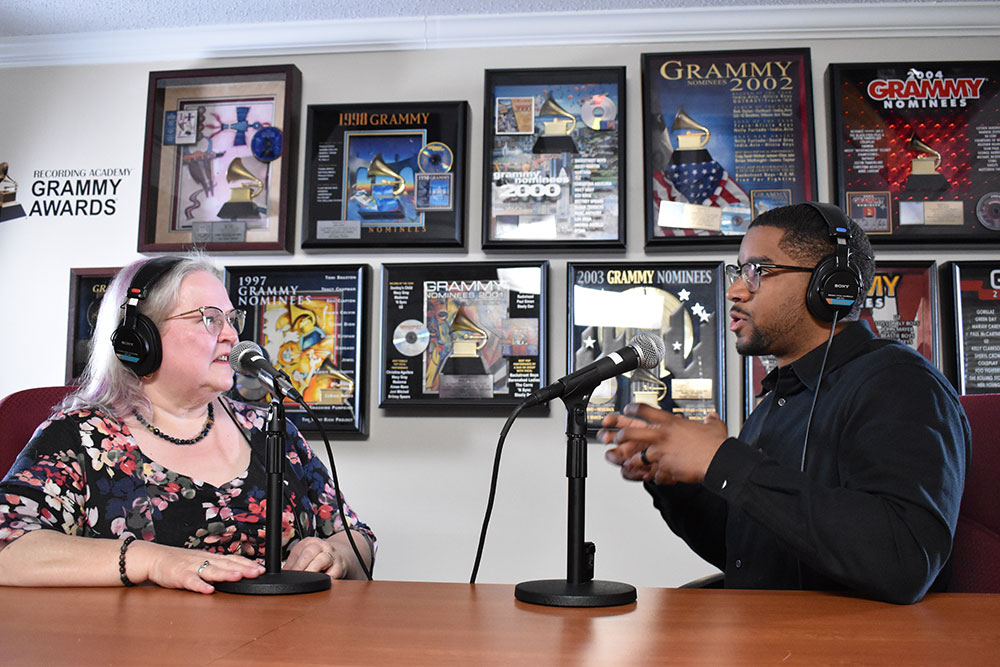
Game Theory Helps Nobel Prize-Winning Economist Save Lives
KENNESAW, Ga. | Apr 2, 2019
Individual choices can change entire markets, according to Nobel Prize-winning economist Dr. Alvin Roth, who spoke last week to a group of Kennesaw State University students. Using the concept of game theory, he explained how people make choices around things like where to work or where to send their children to school, and how those choices affect others’ lives in unforeseen ways.
Meanwhile, other choices, such as deciding who receives a donated kidney, mean the difference between life and death.

The Michael J. Coles College of Business’s Bagwell Center for the Study of Markets and Economic Opportunity recently hosted a Symposium on the Foundations and Applications of Game Theory with Roth as its keynote speaker.
Game theory is a branch of mathematics that examines how a system’s outcomes depend on the actions of multiple decision-makers. A variety of researchers, including economists, sociologists, biologists, and political scientists today use game theory to explain how human behavior and desire affects interactive systems.
Roth, who is a Professor of Economics at Stanford University, received the Nobel Prize in economics in 2012 for his work applying game theory to improving systems for matching new doctors to hospitals, students to the best public school, and organ donors with patients. He discussed these projects during his presentation, “Who Gets What – And Why.”
While each of these marketplaces – labor, schools, and organs – are different, Roth says they are all subject to similar rules, which game theory can help identify.
“Markets in a way are a lot like languages,” he says. “…we modify language to serve our purposes as our needs change. The same is true for markets. Just as there are different kinds of languages, there are different kinds of markets.”
Roth’s goal in each case was to change existing processes to satisfy all decision-makers and produce stable matches. For example, in response to the growing number of doctors marrying other doctors and looking for hospital residencies together, Roth helped devise a system to match them with positions in cities both spouses prefer. The previous system implemented in the 1950s designated one spouse as primary, and only looked for openings in the primary spouse’s preferred city.
“The reason this didn’t work is because of what I call the Iron Law of Marriage,” Roth said. “Which is, you can’t be happier than your spouse.”

He also consulted on a project to change how students in New York City gain enrollment to the best possible public schools. Under the previous system, students ranked their preferred schools, with each principal receiving a copy of the list. A problem was that principals ignored students who listed their school as their second and third choices, only focusing on those who marked it as their first. By changing the process to keep the students’ rankings private, more students today match to preferred schools.
Most famously, Roth revolutionized the national kidney transplant system. Rather than relying on friends or family to be a match, or on a deceased donor’s kidney to become available, Roth established a system where people would donate their kidneys into a national exchange in order to receive one from a donor elsewhere in the chain for their loved one. Roth says that the average “kidney chain” of donors and recipients today includes 10 people.
Roth’s kidney exchange market has become so successful that he hopes to see it expand globally into countries like the Philippines, where the cost of a transplant is so high that kidney disease is virtually a death sentence.
“One of the reasons it would be financially responsible to invite people from other countries into the U.S. exchange is that dialysis is so much more expensive than transplantation,” he said. “Whenever you transplant an American, you save the American healthcare system more than enough to offset the transplantation and subsequent care elsewhere.”
According to Dr. Tim Mathews, Director of the Bagwell Center, it was important to have Roth participate in the symposium to illustrate to students how game theory can affect multiple types of economic and social marketplaces.
“In contrast to most people working in economics,” Mathews says, “his work has direct and literal lifesaving applications.”
-Patrick Harbin
Related Posts

Kennesaw State Partnership Equips Local Entrepreneurs with Tools for Success

Gathering Spot CEO Ryan Wilson on Building a Social Club to Inspire Connections.

Kennesaw State MBA student leveraging degree work for a cause

CEO Magazine Ranks Kennesaw State Executive MBA Top Program in Georgia, No. 11 in the World














